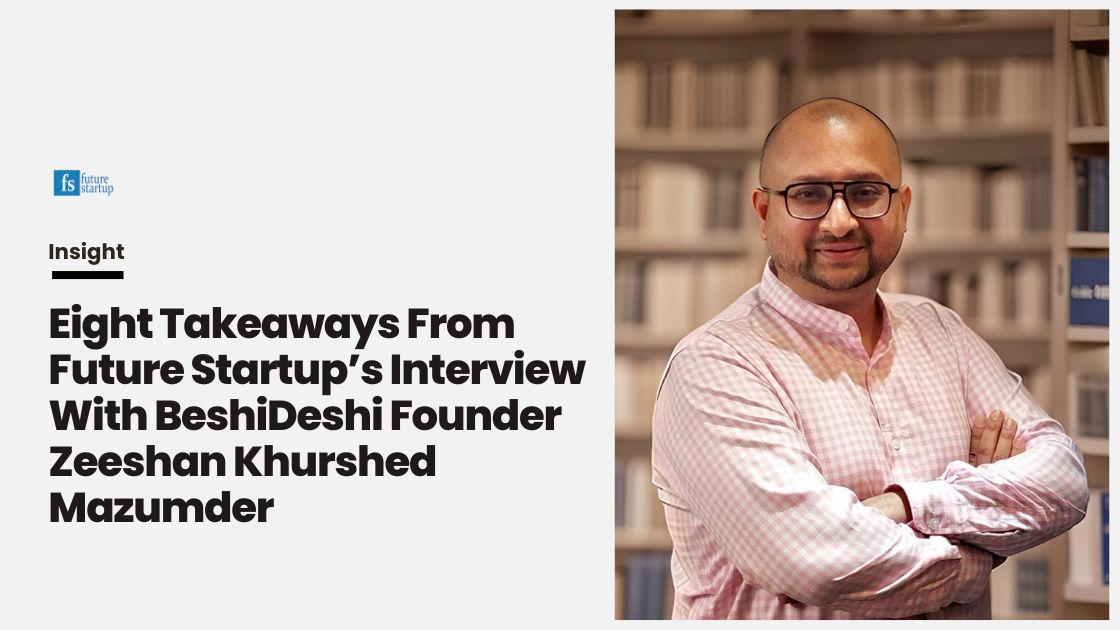
In 2019, BeshiDeshi was a promising, if modest, e-commerce site. Today, it stands transformed—an integrated, comprehensive ecosystem quietly shifting the landscape of Bangladesh’s artisan economy, connecting thousands of craftspeople to national and international markets.
The company’s founder, Zeeshan Khurshed Mazumder, has navigated the complex logistics of handmade goods, balanced competitive pricing against fair artisan compensation, and built a resilient enterprise through constant evolution and dogged execution of the fundamentals. His pragmatic observations on building successful businesses in difficult markets offer insights that resonate far beyond the craft sector.
Here are eight essential takeaways from my conversation with Zeeshan into his philosophy and the evolution of BeshiDeshi.
BeshiDeshi initially focused 90% of its effort on e-commerce sales. However, the COVID-19 pandemic accelerated the shift, dramatically expanding their artisan base as traditional markets closed. Zeeshan quickly realized that sales alone were insufficient; artisans struggled to apply training without market access, finance, or essential support. The venture evolved from a simple marketplace into an "entire ecosystem" that systematically solves critical barriers for producers, a process Zeeshan recognized had to be self-developed despite limited initial collaboration with NGOs.
A crucial pain point for artisans is obtaining fast working capital to fulfill large orders. Traditional banks require lengthy approval processes (three to six months), while local NGOs often charge high interest rates, forcing artisans to increase product prices.
Recognizing this gap, BeshiDeshi created an in-house financial support system, investing from its own funds against work orders. This rapid financing—often provided within a day or two—allowed artisans to focus solely on production, reducing order cancellations and strengthening loyalty.
Zeeshan creatively addressed the cash constraints faced by artisans with existing stock through the Inventory Investment initiative. This crowdfunding-style model allows individuals or corporate entities to invest idle money directly in artisan inventory. BeshiDeshi purchases the inventory outright, providing immediate cash to the producer, and then sells the products gradually. Investors benefit from a competitive return rate, typically ranging from 15% to 17% for six-month or one-year periods, creating a sustainable, impactful value chain.
A major impediment to scaling products online is photography, traditionally an expensive endeavor involving DSLR cameras and specialized teams. BeshiDeshi solved this high-cost challenge by pioneering Bangladesh's first mobile photography training module. This low-cost, high-impact e-learning resource, which covers techniques for specific product categories (like home decor or clothing), has yielded remarkable results: 95% of the 30,000 products on the platform are now photographed by the artisans themselves using mobile phones.
Zeeshan stresses that the path to long-term business success hinges on controlling costs and focusing on financial forecasting. Having learned lessons during the COVID crisis—which necessitated closing 12 prior food businesses due to high operational costs and cash crisis—he advocates for a "lean and frugal operation". He advises new entrepreneurs to "always start small" and prioritize survival over high-profile spending on unnecessary offices or excessive headcounts.
The organization maintains a lean team of about 18 people, emphasizing efficiency and requiring each member to "wear multiple hats". In hiring for its core team, BeshiDeshi consciously disregards educational credentials, whether a Master's degree or just an HSC. The primary traits valued are willingness to learn, resourcefulness, common sense, and culture fit. This friendly, collaborative, flat organizational structure, coupled with constant in-house training, has resulted in a high employee retention rate.
For BeshiDeshi, a critical ongoing challenge is maintaining exacting quality across a distributed production network. Customers expect the received product to exactly match the picture and description, tolerating only a small 5–10% deviation for handmade items. Many artisans, particularly those outside Dhaka, struggle with consistency (e.g., substituting raw materials like thread colors), which requires intensive, costly training before they can be onboarded. By solving for consistency through training and ecosystem support, BeshiDeshi has lowered its overall return rate to less than 3%.
Zeeshan characterizes his learning approach as highly experiential: "I like to dive straight into implementation and learn by doing". Unlike those who learn primarily from books, he views life and reality as the best teachers. He insists on knowing every operational detail, such as visiting factories across the river to determine the precise lowest cost of paint or raw materials.
This detail-oriented implementation allows the organization to optimize processes and survive current and future challenges. Ultimately, Zeeshan aims to use this hard-earned experience to build a meaningful social business, aspiring to leave a legacy that future generations will remember.
